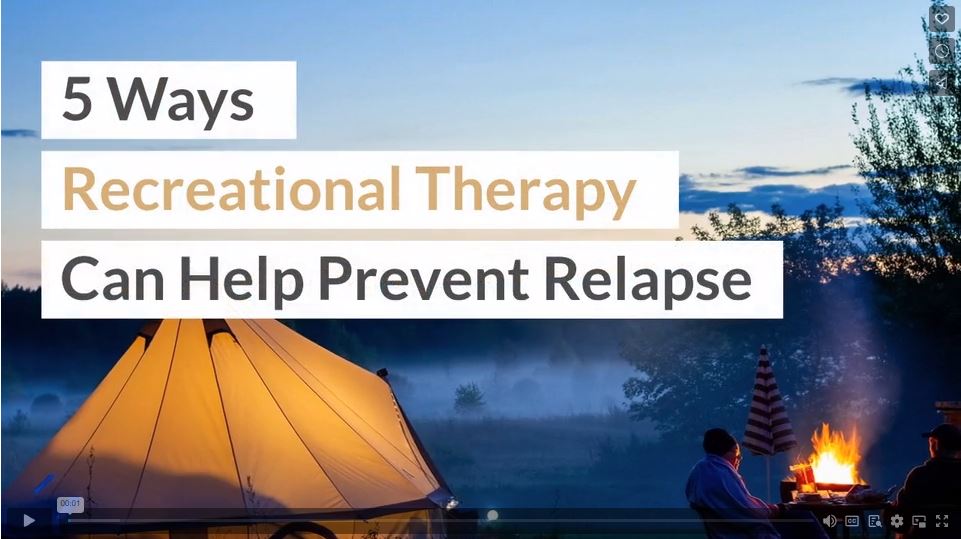It seems simple enough – making time to relax and have fun helps reduce your stress and aid in addiction recovery. But what happens after you take that 30-minute run, shower, and only a short time later, find yourself crumbling under the same stressors you had before you went out? Only now, you feel like you have lost an hour of critical time where you could have been starting in on work assignments, dealing with childcare issues, or taking care of overdue home projects.
When you’re struggling with substance abuse addiction, sometimes just taking a time-out for yourself – while important – isn’t enough to fight off potential relapse triggers. And stress represents the mother of all relapse triggers.
Here is where recreational therapy can make a difference in setting you up for a successful recovery.

(Alora Griffiths/Unsplash)
What Is Recreational Therapy?
According to the American Therapeutic Recreation Association, this form of therapy uses recreational and other activities to help patients reduce stress, anxiety, and depression, build self-confidence, and make and keep critical social connections within their communities. Founded in 1984, ATRA is a professional organization serving thousands of recreation therapists nationwide.
Drug rehab specialists can help a substance abuser learn valuable coping skills in a fun, controlled environment by including recreational therapy in a comprehensive substance abuse rehab plan. Several studies also have found that sports and recreation help patients to transition from identifying as a substance addict to identifying as a person in recovery, which is considered a key catalyst for maintaining sobriety.
Recreational therapy focuses on five key areas to help you build your recovery identity. These are:
- Physical Health
- Emotional Health
- Cognitive Health
- Social Health
- Spiritual Health
How Can Recreational Therapy Help You?
By focusing time and effort in each of these areas with the aid of a certified recreational therapist, you can learn valuable life skills, improve your mental and physical health, and create a spiritual foundation that can guide you for the rest of your life. Let’s take a closer look.
1. Physical Health
Keeping your body in good physical health serves as a critical factor in maintaining sobriety. Physical exercise and a balanced diet will improve immunity, help keep your heart healthy, increase strength and mobility, reduce stress and tension, and give you more energy.
An RT will help you develop an exercise and nutritional regimen that fits your preferences and needs. At an addiction recovery center, that could mean anything from a regular football or baseball game with your fellow residents to weekly classes on healthier eating. After treatment, RTs can assist in finding safe and affordable community resources to help you maintain those physical wellness habits you developed in treatment.
2. Emotional Health
In addition to other evidence-based therapies, recreational treatment programs can aid in battling depression, anxiety, self-blame, and other psychological effects that often accompany substance addiction and recovery. RTs will use art, drama, music, play, and other recreational activities to help you boost your confidence in trying new things and find healthy coping mechanisms for those times when you are overwhelmed with anger or stress.
Small successes, such as learning how to draw or paint, writing a short story, or sculpting a piece of clay, will go a long way to assure you that you can do hard things. In turn, change and growth will not feel as scary or unachievable.
3. Cognitive Health
It’s no secret that continuous drug and alcohol use changes the chemistry and function of your brain, most specifically the frontal cortex. That is where your major cognitive activities happen, such as planning and memory, decision-making, and response inhibition.
As you go through substance abuse rehab, an RT can work with you to improve your concentration, memory, focus, and other critical thinking skills by engaging with you in video and board games, puzzles, and various additional play activities.
4. Social Health
For good reason, learning to connect with others in authentic and meaningful ways represents one of the key goals of recreational therapy – you can’t have a successful recovery journey in isolation. You need family, friends, and other supportive relationships to help you stay on the sobriety path.
Recreational therapists can offer an array of social activities, including team sports, group bonding exercises, and service opportunities. These pursuits help you learn that trusting and relying on others is normal and healthy. You also become someone others can turn to for strength and support in their recovery journeys.
After treatment, an RT can direct you to community resources that will help keep you connected to your neighbors and friends. Another excellent opportunity for holding on to those essential ties you developed in treatment is to engage with your drug rehab’s alumni group if it has one. Alumni groups, such as Renaissance Ranch’s Band of Brothers, meet regularly for dinners, outings, and other fun activities.
5. Spiritual Health
Our perspective changes when we realize and accept that a greater force exists in the universe and that we have a purpose here on this earth. We learn that our actions have consequences for ourselves and others and that a higher moral code holds us accountable for those actions. And we begin to understand that we have access to a supreme power that will help us change our course and find our place in this world.
An RT has an endless arsenal of mindfulness activities to help you connect to your own spirituality, such as Yoga, prayer, meditation, journaling, scripture reading, and Tai Chi, to name a few. All these activities can help give us an increased sense of balance and peace in life and facilitate more profound connections with ourselves and others.
As you can see, recreational therapy, in conjunction with other evidence-based therapies, can offer essential support in your recovery journey. As you seek out a qualified substance abuse recovery center, it’s a great idea to make sure it includes a healthy dose of recreational therapy.
Infographic
When dealing with drug misuse, the mother of all relapse triggers is stress. This is where recreational therapy may help you get on the right track for a full recovery. Including recreational therapy in a thorough substance abuse rehab plan may assist a substance abuser in learning vital coping skills.
Video


